Malaria remains one of Nigeria’s most pressing public health issues. According to the World Health Organization, Nigeria accounted for 27% of global malaria cases and 32% of global malaria deaths in 2022 (source). Despite government efforts to improve access to treatment, many Nigerians continue to rely on home remedies for malaria, often passed down through generations.
But how effective are these remedies? Can they really fight malaria, or do they simply mask the symptoms? In this blog, we explore common Nigerian home remedies for malaria symptoms, examine the scientific evidence, and share expert opinions on what truly works.
Recognizing Malaria Symptoms Early
Before diving into treatments, it’s vital to recognize the symptoms of malaria. Early diagnosis can be lifesaving. The Nigerian Centre for Disease Control lists the following as common symptoms:
- High fever. Also read: Get Tested for STD
- Chills and shivering
- Headaches
- Sweating
- Vomiting
- Body aches
- Weakness and fatigue.
Dr. Adesuwa Omoruyi, a public health physician at the University of Benin Teaching Hospital, explains,
“Fever and chills are the red flags. If these symptoms persist beyond 48 hours, especially in children or pregnant women, medical attention is essential.”
Popular Nigerian Home Remedies for Malaria
1. Neem Leaves (Dogoyaro)
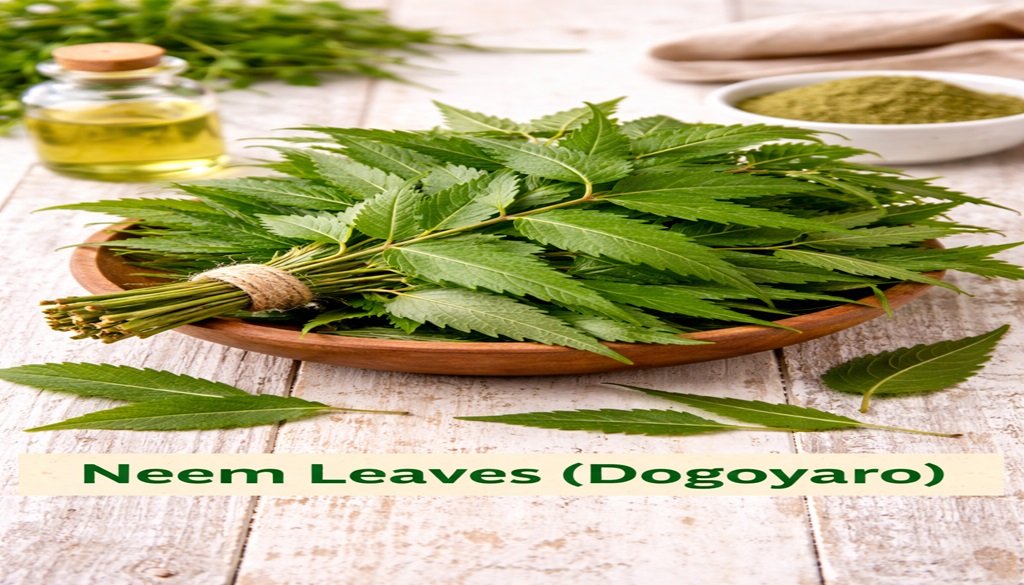
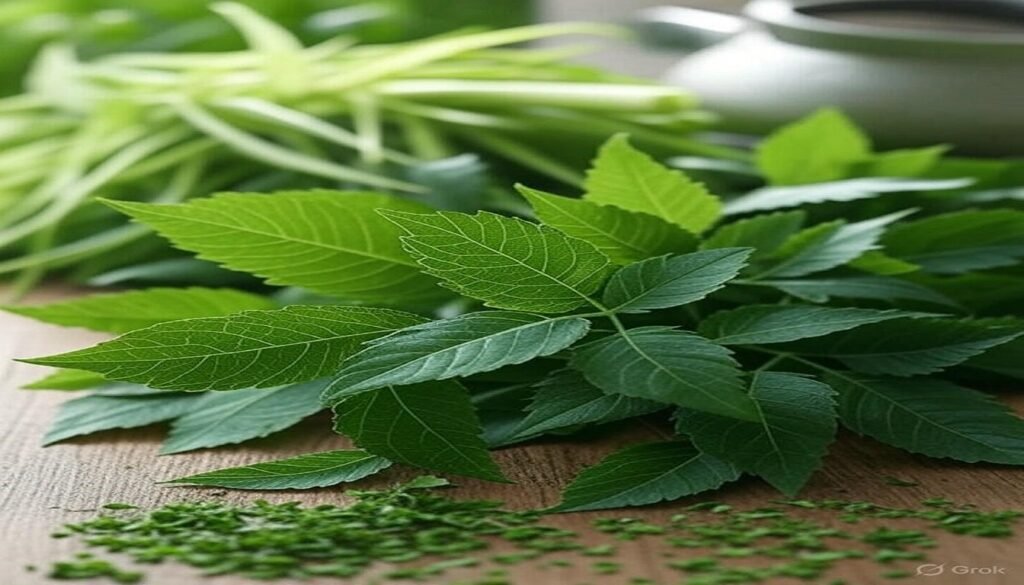
Dogoyaro is widely used in Nigeria as a malaria treatment. Boiling the leaves to make a bitter tea or steam bath is common practice.
According to Dr. Ibrahim Uthman, a Lagos-based herbal researcher:
“Neem has antipyretic and anti-inflammatory properties. While it can reduce fever, it does not eliminate the malaria parasite.”
2. Pawpaw Leaf Juice
Traditionally used to treat dengue and typhoid, pawpaw leaves are also popular for malaria. Users squeeze the juice and drink small amounts.
However, the National Institute for Pharmaceutical Research and Development cautions that
“There is insufficient clinical evidence supporting pawpaw leaf’s effectiveness against malaria. Its use should complement—not replace—standard treatment.”
3. Lime and Lipton Tea Combo

This mixture is used by many for fever relief. Though not harmful, it offers little more than hydration.
Dr. Victoria Adegoke, nutritionist at the University College Hospital (UCH) Ibadan, says:
“The warm tea hydrates and soothes, but it’s not a cure. Staying hydrated is good, but don’t rely on this mixture alone.”
4. Steam Inhalation with Herbs
Steam therapy with lemongrass or eucalyptus is believed to reduce headaches and body pain.
The Nigerian Society of Physiotherapy supports its use as a comfort measure but warns:
“This is symptomatic relief. It doesn’t stop parasite replication.”
5. Hydration with Local Drinks
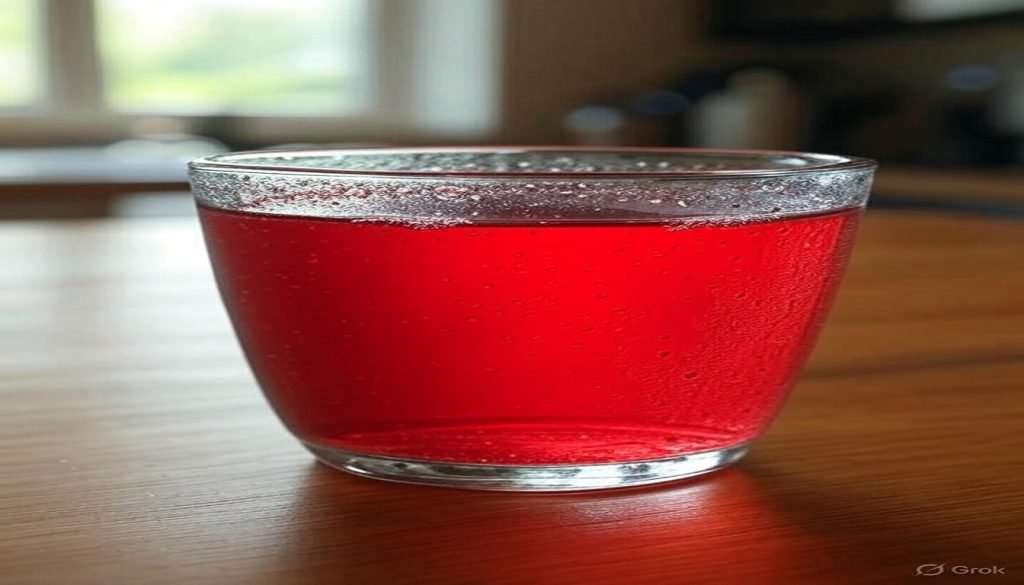
Traditional drinks like kunu, zobo, and akamu are often given to malaria patients to replenish fluids. Also read: Curb Heart Attacks
According to UNICEF Nigeria, dehydration during malaria increases the risk of complications:
“Providing fluids, including traditional non-caffeinated drinks, can support recovery—especially in children.”
(UNICEF on child health). Read also: Lifeline of Hydration
What Does Science Say About Home Remedies?
Although traditional remedies may provide temporary relief, only artemisinin-based combination therapies (ACTs) are proven to treat malaria effectively. According to the WHO Malaria Report 2023:
“ACTs are the most effective antimalarial medicines available today. Herbal treatments should never substitute these.”
(WHO report)
The Nigerian Medical Association (NMA) warns that
“Delaying medical treatment in favor of home remedies can lead to severe malaria or death, especially in children under five.”
A 2019 study by the African Centre for Malaria Control found that 63% of Nigerians tried herbs first before seeking hospital care. This delay often results in complications.
Furthermore, the Journal of Ethnopharmacology published a review of over 50 traditional Nigerian herbs used for malaria. It found that while many have anti-inflammatory and antipyretic effects, very few have confirmed antiplasmodial properties (source).
When to Seek Professional Medical Help
Some symptoms should never be ignored. If you or someone you know experiences the previously mentioned symptoms plus any of the following:
- Unconsciousness
- Seizures
- Persistent vomiting
- Rapid breathing
- Confusion or disorientation
Seek urgent care immediately.
The Federal Ministry of Health (Nigeria) recommends that any suspected case of malaria be confirmed with a Rapid Diagnostic Test (RDT) and treated with ACTs within 24 hours of symptom onset.
Dr. Tunde Balogun, WHO consultant in Abuja, adds:
“Don’t wait for home remedies to work. Severe malaria progresses fast and can become fatal in 48 hours.”
Preventing Malaria at Home
Beyond treatment, prevention is critical. Here’s how to protect your home and family:
Use Long-Lasting Insecticidal Nets (LLINs)
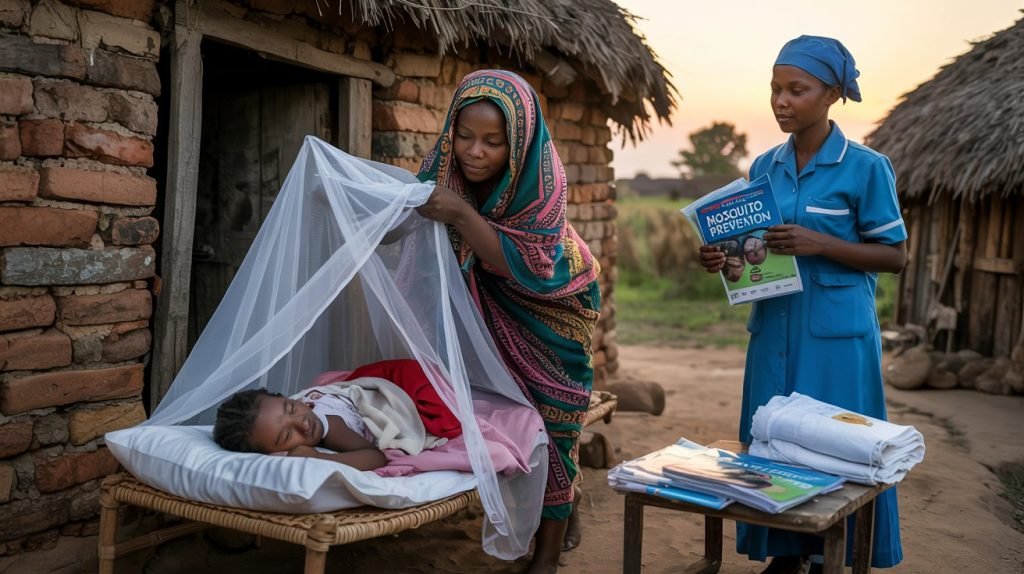
The President’s Malaria Initiative (PMI) reports that consistent net use reduces child mortality by 20%. https://www.pmi.gov/
Apply Mosquito Repellents
Use DEET-based creams or natural alternatives like lemon eucalyptus oil.
Eliminate Mosquito Breeding Sites
Clear standing water in gutters, old tires, and buckets. The Lagos State Ministry of Health regularly emphasizes the importance of community sanitation to reduce mosquito populations.
Indoor Spraying
Use indoor residual sprays monthly during the rainy season. It’s especially helpful in crowded urban households.
FAQs: Home Remedies & Malaria in Nigeria
Q1: Can herbal remedies cure malaria?
A: No. They may relieve symptoms but cannot eliminate the parasite. Only ACTs are proven to cure malaria.
Q2: Is it safe to give pawpaw leaf to children with malaria?
A: No. Children under five are vulnerable. Herbal treatments should never replace medical care in children.
Q3: Can I combine neem tea with ACT drugs?
A: Generally, yes—but consult a doctor first to avoid interactions.
Q4: How soon should I go to the hospital for malaria symptoms?
A: Ideally, within 24 hours of noticing fever, chills, or vomiting—especially in children and pregnant women.
Q5: What’s the best way to prevent malaria during the rainy season?
A: Sleep under LLINs, use repellents, wear long clothing, and eliminate stagnant water.
Final Thoughts
Home remedies may provide comfort, but they are not a substitute for medical treatment. Balancing cultural knowledge with modern medicine saves lives. By combining prevention, prompt diagnosis, and ACT treatment, we can reduce malaria’s burden in Nigeria.
As Dr. Chikwe Ihekweazu, former NCDC director, put it:
“We cannot herbalize our way out of a malaria epidemic. Science must lead the way, and tradition must support, not replace, it.”
Take Action Today
Don’t gamble with your health or that of your loved ones. Stay informed, treat early, and protect your family with proven solutions that blend tradition and science.
This post is for educational purposes only; therefore, consult your doctor before making any medical decisions.
Kindly Subscribe, Like and Share this post.


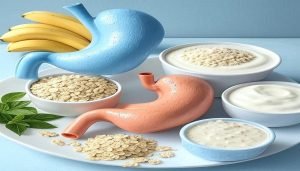


Pingback: How To Break Mental Health Stigma in Nigeria: The Facts
Pingback: Boost Immunity Naturally With Nigerian Foods
Pingback: Rainy Season Diseases in Nigeria: Malaria, Typhoid & Cholera
Pingback: Common Childhood Illnesses in Nigeria and How to Respond
Pingback: Lassa Fever, Malaria and Typhoid: Spot Differences